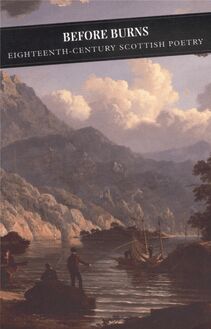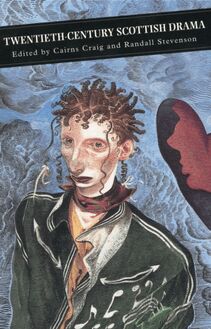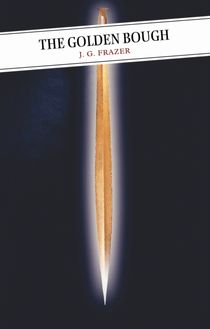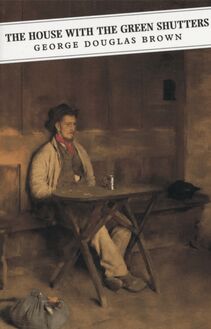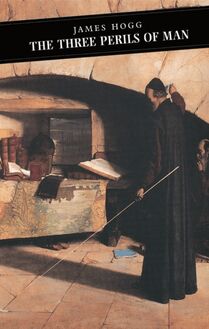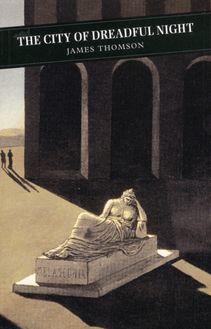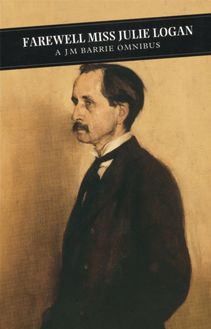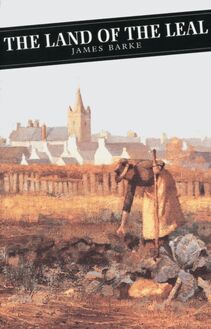-
 Univers
Univers
-
 Ebooks
Ebooks
-
 Livres audio
Livres audio
-
 Presse
Presse
-
 Podcasts
Podcasts
-
 BD
BD
-
 Documents
Documents
-
- Cours
- Révisions
- Ressources pédagogiques
- Sciences de l’éducation
- Manuels scolaires
- Langues
- Travaux de classe
- Annales de BEP
- Etudes supérieures
- Maternelle et primaire
- Fiches de lecture
- Orientation scolaire
- Méthodologie
- Corrigés de devoir
- Annales d’examens et concours
- Annales du bac
- Annales du brevet
- Rapports de stage
La lecture à portée de main

Vous pourrez modifier la taille du texte de cet ouvrage
Découvre YouScribe en t'inscrivant gratuitement
Je m'inscrisDécouvre YouScribe en t'inscrivant gratuitement
Je m'inscrisEn savoir plus
Vous pourrez modifier la taille du texte de cet ouvrage
En savoir plus

Description
Sujets
Informations
| Publié par | Canongate Books |
| Date de parution | 01 juillet 2010 |
| Nombre de lectures | 0 |
| EAN13 | 9781847675002 |
| Langue | English |
Informations légales : prix de location à la page 0,0800€. Cette information est donnée uniquement à titre indicatif conformément à la législation en vigueur.
Extrait
GEORGE FRIEL
A Glasgow Trilogy
The Boy Who Wanted Peace Grace and Miss Partridge Mr Alfred M.A.
Introduced by
GORDON JARVIE
Contents
Introduction
THE BOY WHO WANTED PEACE
GRACE AND MISS PARTRIDGE
MR ALFRED M.A.
Introduction
Arguably, the writing of George Friel (1910–75) is far more widely known today than it was during the author’s lifetime. His short stories were finally collected and published in book formin 1992, a mere eighteen years after his death and more than half a century after their author had originally planned to publish a collection of stories. His first novel, The Bank of Time (1959), finally made it into paperback in 1994 – await of only thirty-five years. The appearance of this collection of his three greatest novels may now accelerate the slow process of popularisation of a still-neglected literary canon.
In his lifetime, Friel was a prophet without much honour in his own country. He found it very hard indeed to get his work published. His inscription to a good friend inside the copy of his novel Grace and Miss Partridge (1969) nicely summarises some of the frustrations he encountered getting his work into print:
In explanation of the long delay
I wrote a story in 63
about a partridge in a bare tree.
I typed it clear in 64
and tried my publishers once more.
Back it came in 65 –
Ah well, I said, I’ll still survive.
It lay unread till 66
till Mrs Boyars 1 , promising nix,
asked to see it again in 67,
accepted it – so all forgiven.
I got no proofs till 68
and that was November, rather late.
Printed at last in 69,
so now it’s yours as well as mine. 2
The novel in question was not written by an unknown writer. It was to be George Friel’s third published novel, and it followed the minor triumph of The Boy Who Wanted Peace (1964), a book which received wide acclaim from mainstream critics and fellow writers, and one which was compared favourably with Brighton Rock, Lord of the Flies and A Clockwork Orange , among others. And yet the publisher prevaricated.
The author, for his part, was no trimmer before the winds and fads of literary fashion. He was the uncompro- mising realist who also penned the lines:
Seven times I wrote this story,
Not for cash or fame or glory,
Just to get the telling right
Though it never see the light.
If it’s printed I confess Truly
I could not care less. 3
All of Friel’s writing is based on Glasgow, its new housing schemes, its industrial wastelands, its blackboard jungles, the nooks and crannies of its closes and sandstone tenements. No writer can paint this landscape with more laconic authority or grim humour. Friel tried to describe this world ‘like it was’, unvarnished and unidealised. Defending himself from the accusation that his fictional world was bleak and depressing, he asked rhetorically, ‘What am I going to do? Put my head in the sand and say that everything is lovely? Surely a novelist, even in Glasgow, if he is writing about contemporary life, must tell the truth as he sees it. If I could see a lot of sweetness and light in Glasgow I would be happy to write about it: this is life. If you say what is going on then something might get done. But if you play Mr Glasgow and pretend that it’s a fine warm-hearted city then you are kidding yourself, kidding the public, and pledging the future to no reform.’ (Interview in The Guardian , 24 March 1972.)
After Glasgow, a second key theme of George Friel’s fiction is the world of Scottish education. If they read no other fiction in the course of their studies, all trainee teachers should read the novels of Friel. They tell us more about the Scottish school system of the 1950s and ’60s than any history book could – and, by extension, offer us much to ponder regarding the kind of school system we have today. When the psychiatrist asks Mr Alfred why he doesn’t like the new methods and new schemes of work in his profession, Mr Alfred explains: ‘Well … all that’s said in their favour is that they’re new. I don’t like that. It’s not a reason.’ (p. 584) What would Mr Alfred – in his own literary way, a champion of traditional values – make of the current orthodoxies of Scottish education, after a further quarter of a century of relentless novelties?
Like Friel, many modern Scottish writers have been teachers by profession. One thinks of Sorley Maclean and Norman MacCaig, Robin Jenkins and Iain Crichton Smith, to name but a few. But unlike any of these writers, the world of school is uniquely central to Friel’s novels and stories. School in his fiction is a metaphor for the uneasy relationships between the adolescent and the adult world, whether individual or institutional. At the individual level, Percy Phinn is the not-quite adult leader of the Brotherhood in The Boy Who Wanted Peace , whose authority over the gang rests on the fact that he is bigger and older than his schoolboy rank-and-file; likewise Miss Partridge’s potentially sinister hold over Grace; and Mr Alfred’s more innocent infatuation with Rose Weipers.
Friel tried for an authentic picture of the school system he worked within. He had no wish to demonise or idealise it. Sometimes the picture he painted went too close to the bone for the apologists for the system, and he was certainly no friend of political correctness. It seems fairly clear that Friel blames the system for failing to face the facts of the situation it had to cope with. As he rambles semi-coher- ently at the apocalyptic end of the book, Mr Alfred finds a piece of chalk in his pocket, and this sets him off:
‘Talk and chalk,’ he said. ‘That’s me. Out-of-date. The child is master of the man. New methods. Visual aids. Projects. Research. Doesn’t matter half the bastards can’t read. Do research just the same. Discover Pythagoras’ theorem for themselves. Could you?’ (p. 575)
Or again:
‘You must never say a child is stupid,’ said Mr Lindsay. ‘There are no stupid children, just as there are no bad children.’
‘But there are,’ said Mr Alfred. ‘Whether you believe in original sin or believe in evolution, you can’t deny there’s wickedness and stupidity in the world.’
‘You know that and I know that,’ said Mr Lindsay. ‘But the top brass won’t admit it. They’ve never worked nine to four, Monday to Friday in a classroom. They talk as if there was only a shower of little Newtons and Einsteins who haven’t had a fair chance because you didn’t teach them right.’ (pp. 543–4)
Miss Seymour, ‘airy-mannered, brisk-moving, swift- speaking and fully fashionable’, sums it all up:
‘Spelling and grammar don’t matter … just as long as they write something. Creative activity, that’s what counts … What you see there is what the inspectors want. This is the day of the child- dominated classroom.’ (pp. 545–6)
It is in this strange world that Mr Alfred is drowning:
Mr Alfred didn’t like it. He wanted to teach. But nobody wanted to learn. He knew it was his job to make them. He tried. He failed. It was like talking into a phone with nobody at the other end. (p. 543)
It is not only Mr Alfred who illustrates the challenges of teaching. Mr Daunders, headteacher in The Boy Who Wanted Peace , is another well-sketched character. Like Percy Phinn, Mr Daunders too wants ‘peace and quiet to sit in the sun and read’ (p. 167). He spends much time lamenting his fate:
… he sighed at the destiny that had condemned him to be a headmaster in a small primary school in one of Glasgow’s wild-life reservations, a pocket of vandalism, a pool of iniquity. (p. 68)
The school in Tulip Lane provides centre stage for the action of The Boy Who Wanted Peace ; here Percy’s late father had been janitor and his mother was a cleaner; in its basement, among the old Sunshine Readers and boxes of stage props, is concealed the robbers’ loot; Percy himself is a former pupil and his gang are pupils of the school. Similarly in Mr Alfred M.A ., Collinsburn Comprehensive, Waterholm Comprehensive, and the vandalised annexe of Winchgate Primary are key locations. It is no exaggeration to say that the smells of childhood – of school corridors, playgrounds and classrooms – haunt and pervade the pages of two of these three books.
It is maybe not entirely surprising that one of the young George Friel’s literary heroes was James Joyce. Appropriately enough for a son of first-generation Donegal emigrant parents, George’s notebook sketches indicate plans to write a Glasgow version of Joyce’s Dubliners (1914), and in some respects his short stories of the 1930s stand comparison with Joyce’s classic collection. In the novels represented in this publication, there are explicit references to Finnegans Wake (1939) in Grace and Miss Partridge ; and to Stephen Dedalus in Mr Alfred M.A ., as well as a quote by Mr Alfred – he ‘had silence and exile, but no cunning’ – from Portrait of the Artist as a Young Man (1916). And at the end of Mr Alfred’s story, the scene in the mental hospital with the two psychiatrists is straight out of the work of another James Joyce fan – Samuel Beckett. It is to the work of these writers that George Friel’s fiction seems most akin, rather than to that of his Scottish contemporaries.
Some of the wordplay of Friel’s writing echoes Joyce and Beckett in its economy and exactness, and occasionally in its poetry:
Still, with his usual politeness he answered insincerely, or with his usual insincerity he answered politely. (p. 392)
A ruffled hen laying a complaint and making a song about it. (p. 406)
Tordoch … became a waste land of bracken and nettles surrounded by a chemical factory, gasworks, a railway workshop and slaghills. At that point the town council took it over for a slum-clearance scheme. They built a barrack of tenements with the best of plumbing and all mod cons and expected a new and higher form of civilisation to flare up by spontaneous combustion. (p. 408)
[Gerald Provan] grinned, hands in the pockets of his tightarsed jeans, kicking the
Attention
En entrant sur cette page, vous certifiez :
- 1. avoir atteint l'âge légal de majorité de votre pays de résidence.
- 2. avoir pris connaissance du caractère érotique de ce document.
- 3. vous engager à ne pas diffuser le contenu de ce document.
- 4. consulter ce document à titre purement personnel en n'impliquant aucune société ou organisme d'État.
- 5. vous engager à mettre en oeuvre tous les moyens existants à ce jour pour empêcher n'importe quel mineur d'accéder à ce document.
- 6. déclarer n'être choqué(e) par aucun type de sexualité.
YouScribe ne pourra pas être tenu responsable en cas de non-respect des points précédemment énumérés. Bonne lecture !
-
 Univers
Univers
-
 Ebooks
Ebooks
-
 Livres audio
Livres audio
-
 Presse
Presse
-
 Podcasts
Podcasts
-
 BD
BD
-
 Documents
Documents
-
Jeunesse
-
Littérature
-
Ressources professionnelles
-
Santé et bien-être
-
Savoirs
-
Education
-
Loisirs et hobbies
-
Art, musique et cinéma
-
Actualité et débat de société
-
Jeunesse
-
Littérature
-
Ressources professionnelles
-
Santé et bien-être
-
Savoirs
-
Education
-
Loisirs et hobbies
-
Art, musique et cinéma
-
Actualité et débat de société
-
Actualités
-
Lifestyle
-
Presse jeunesse
-
Presse professionnelle
-
Pratique
-
Presse sportive
-
Presse internationale
-
Culture & Médias
-
Action et Aventures
-
Science-fiction et Fantasy
-
Société
-
Jeunesse
-
Littérature
-
Ressources professionnelles
-
Santé et bien-être
-
Savoirs
-
Education
-
Loisirs et hobbies
-
Art, musique et cinéma
-
Actualité et débat de société
- Cours
- Révisions
- Ressources pédagogiques
- Sciences de l’éducation
- Manuels scolaires
- Langues
- Travaux de classe
- Annales de BEP
- Etudes supérieures
- Maternelle et primaire
- Fiches de lecture
- Orientation scolaire
- Méthodologie
- Corrigés de devoir
- Annales d’examens et concours
- Annales du bac
- Annales du brevet
- Rapports de stage
